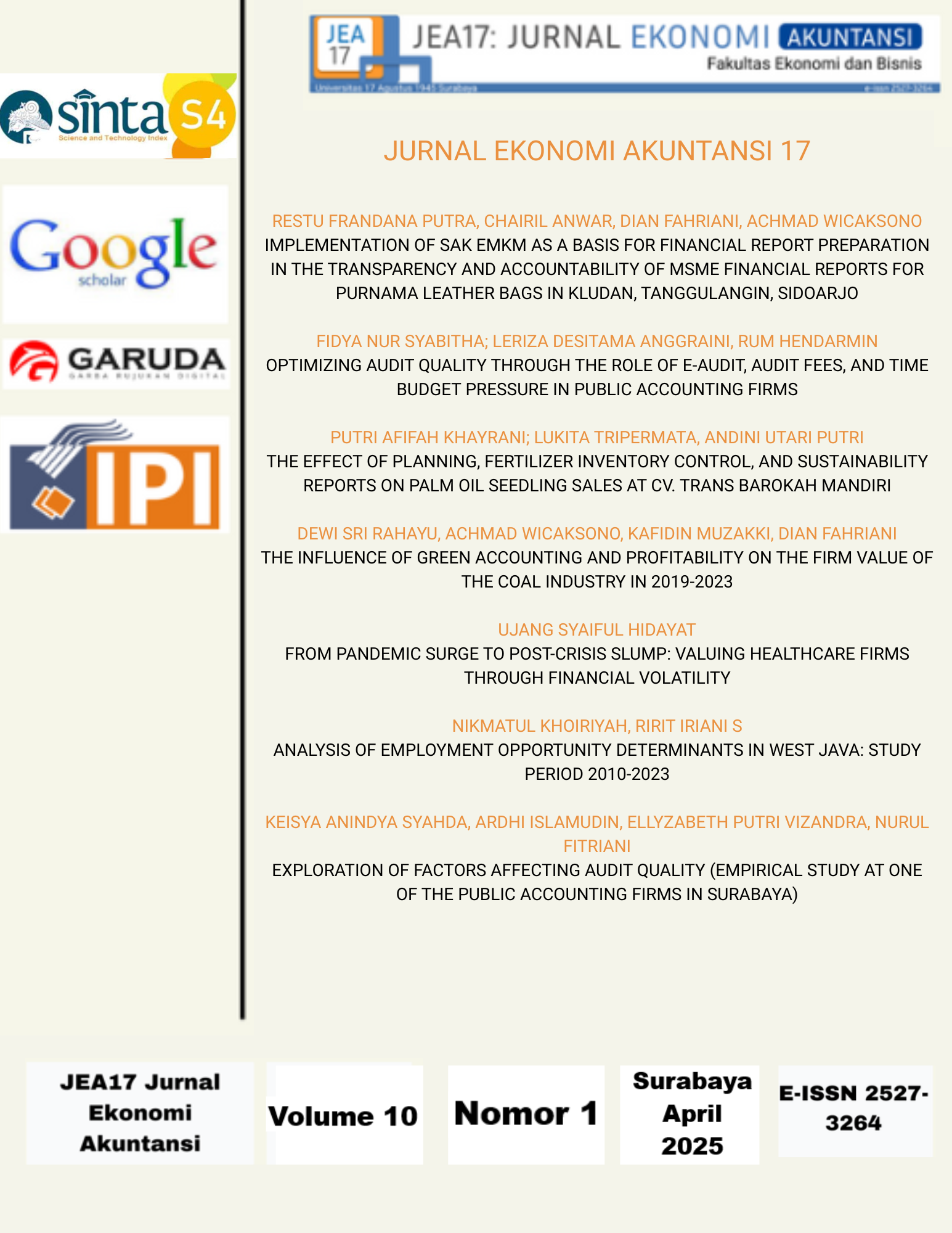ANALYSIS OF EMPLOYMENT OPPORTUNITY DETERMINANTS IN WEST JAVA: STUDY PERIOD 2010-2023
DOI:
https://doi.org/10.30996/jea17.v10i1.131987Abstract
Regional economic development is closely related to the ability of a region to create employment opportunities that support the welfare of its population. This study aims to analyze the effect of Gross Regional Domestic Product (GRDP), population, average length of schooling (RLS), and Provincial Minimum Wage (UMP) on employment opportunities in West Java Province during the period 2010–2023. Using a quantitative approach with time series data analysis, this research applies multiple linear regression with SPSS to test the influence of the independent variables on employment opportunity levels. The classical assumption tests indicate that the regression model is free from problems of normality, multicollinearity, autocorrelation, and heteroscedasticity. The results show that population and average length of schooling have a significant and positive effect on employment opportunities, implying that increasing population drives demand for goods and services which in turn stimulates job creation, while higher education improves workforce skills and competitiveness. Conversely, GRDP and UMP do not show a significant influence on employment opportunities, suggesting that economic growth and wage levels are not automatically aligned with job creation, especially in capital-intensive sectors. The findings of this study provide empirical insight into the determinants of employment opportunities and offer policy recommendations for addressing unemployment and improving labor market absorption in densely populated regions like West Java.Downloads
Download data is not yet available.
Downloads
Published
2025-06-18
Issue
Section
Articles
License
Authors whose manuscript is published will approve the following provisions:
- The right to publication of all journal material published on the JEA17: Jurnal Ekonomi Akuntansi website is held by the editorial board with the author's knowledge (moral rights remain the property of the author).
- The formal legal provisions for access to digital articles of this electronic journal are subject to the terms of the Creative Commons Attribution-ShareAlike (CC BY-SA) license, which means JEA17: Jurnal Ekonomi Akuntansi reserves the right to store, modify the format, administer in the database, maintain and publish articles without requesting permission from the Author as long as it keeps the Author's name as the owner of Copyright.
- Printed and electronically published manuscripts are open access for educational, research, and library purposes. In addition to these objectives, the editorial board shall not be liable for violations of copyright law.











